‘The Lord Of The Rings’ Director Peter Jackson Explains Why He Believes The Films’ Spiritual Aspects Are Clearer Than Tolkien’s Novels
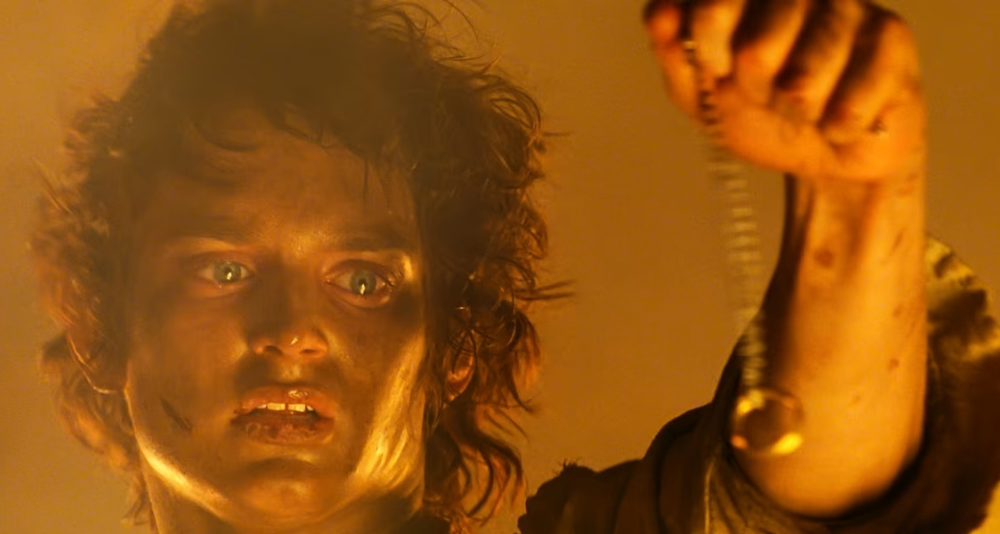
The Lord of the Rings director Peter Jackson detailed why he believes the spiritual aspects of the story are even clearer in the films than they are in J.R.R. Tolkien’s novels while promoting The Lord of the Rings: The Return of the King back in December 2003.
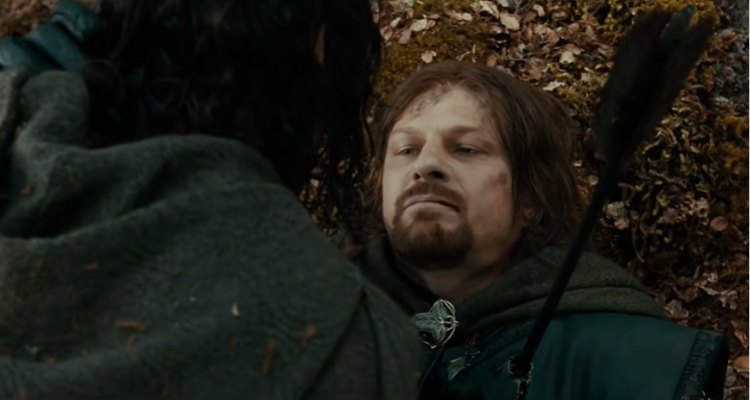
Sean Bean as Boromir confesses to Viggo Mortensen as Aragorn in Lord of the Rings: The Fellowship of the Ring (2001), New Line Cinema
TheOneRing.com’s Jonathan Watson recently uploaded the press event he attended to his YouTube channel where Jackson was asked at one point, “The spiritual aspects of this seem clearer than even in the book. Is that your intention?”
Jackson responded, “Yeah, I mean I think that it was. Hopefully, when you’re adapting things, you try to make things clearer than they are in the book because cinema needs things to be simplified. And you choose what you’re trying to emphasize and then, yeah, they do become a bit stronger.”
Jackson specifically pointed to a scene where the Hobbits gather in the Green Dragon after returning to the Shire, “But certainly the concept, I mean, I found in Return of the King I felt a lot of it was about Tolkien’s war experiences too. His first World War experiences. There was a scene that we shot in the movie when the Hobbits return to Hobbiton and they’re in the pub, they’re in the inn, the Green Dragon, and that felt to me very much like what would have happened at the end of the first World War, which, obviously, Tolkien experienced where soldiers come back and life around them has gone on, but nobody really knows what they went through.”
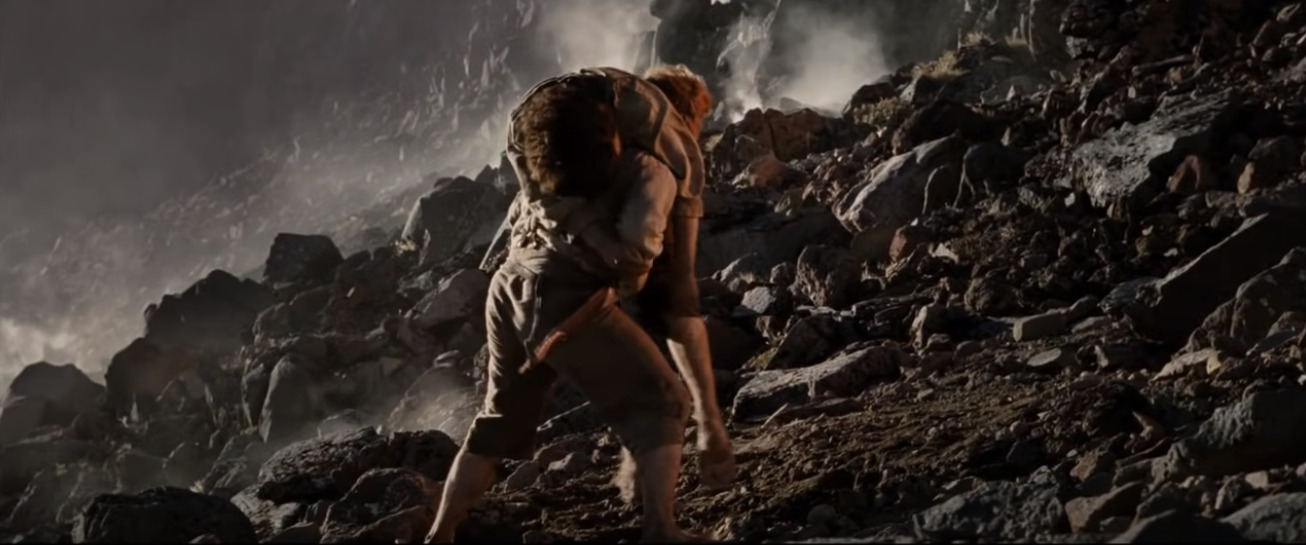
Sean Astin as Samwise Gamgee and Elijah Wood as Frodo Baggins in The Lord of the Rings: The Return of the King
He continued, “Nobody can understand. They can’t talk to their families, they can’t talk to their loved ones. How can you begin to have a conversation about the horrors that you saw and yet you meet up with your comrades and there’s just this unspoken understanding between you that you know what you went through?”
“I mean I think that’s why a lot of return servicemen’s organizations were formed all around the world,” he added. “In New Zealand it’s the RSA. We call it the RSA. I’m not sure what it’s called here. The Return Servicemen’s, sort of the return soldiers kind of groups.”
“And I’m sure that’s why they were formed because soldiers just needed to be able to connect on a basic level of having an understanding amongst each other of what they went through because they couldn’t talk about it outside. And to me that was sort of quite poignant when they bring in the big pumpkin and everyone’s more interested in the pumpkin than they are. But in a way that’s what they did. They did what they did so that everybody could be excited about the pumpkins and continue to have their lifestyle,” Jackson concluded.
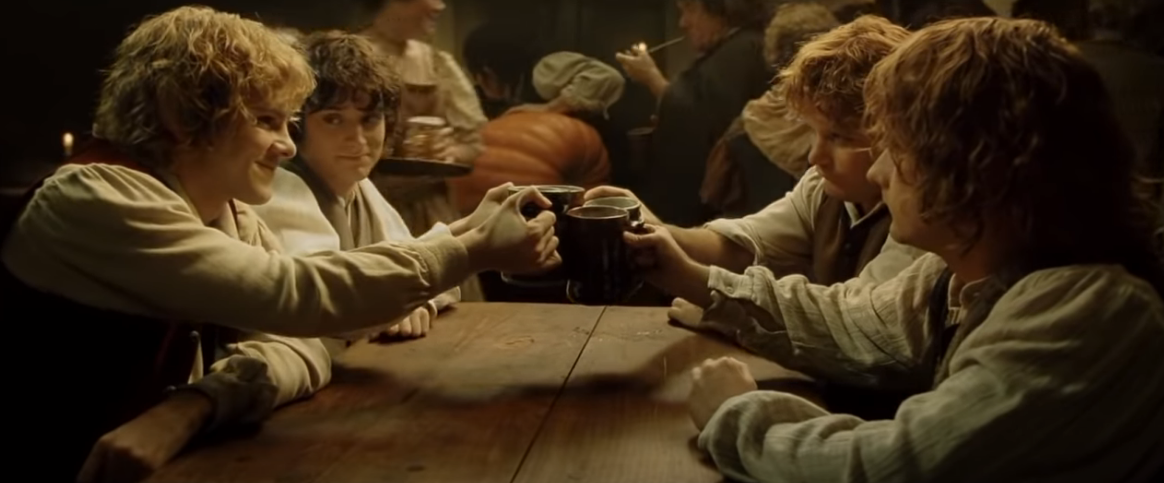
Dominic Monaghan as Merry, Elijah Wood as Frodo, Sean Astin as Sam, and Billy Boyd as Pippin in The Lord of the Rings: The Return of the King (2003), New Line Cinema
Tolkien discussed the religious nature of The Lord of the Rings in Letter 142 to Father Robert Murray informing him, “The Lord of the Rings is of course a fundamentally religious and Catholic
work; unconsciously so at first, but consciously in the revision.”
“That is why I have not put in, or have cut out, practically all references to anything like ‘religion’, to cults or practices, in the imaginary world,” he explained. “For the religious element is absorbed into the story and the symbolism.”
“However that is very clumsily put, and sounds more self-important than I feel. For as a matter of fact, I have consciously planned very little; and should chiefly be grateful for having been brought up (since I was eight) in a Faith that has nourished me and taught me all the little that I know; and that I owe to my mother, who clung to her conversion and died young, largely through the hardships of poverty resulting from it,” he added.
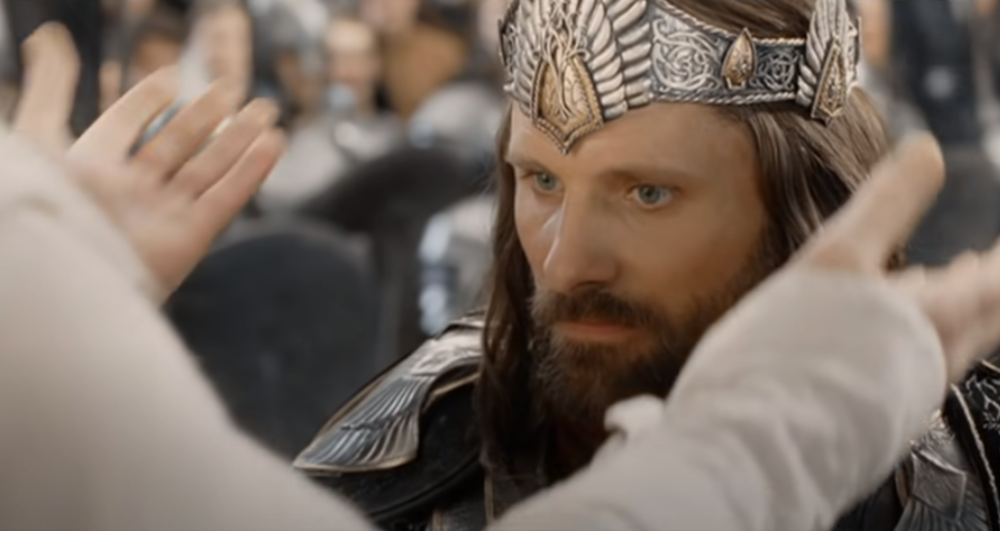
Ian McKellen as Gandalf and Viggo Mortensen as Aragorn in The Lord of the Rings: The Return of the King (2003), New Line Cinema
As for Jackson’s discussion on much of the story being about Tolkien’s experiences during World War I, Tolkien detailed in a letter to W.H. Auden that the first story he wrote in Middle-earth was during sick-leave in 1916.
He wrote, “Though the first real story of this imaginary world almost fully formed as it now appears was written in prose during sick-leave at the end of 1916: The Fall of Gondolin, which I had the cheek to read to the Exeter College Essay Club in 1918. I wrote a lot else in hospitals before the end of the First Great War.”
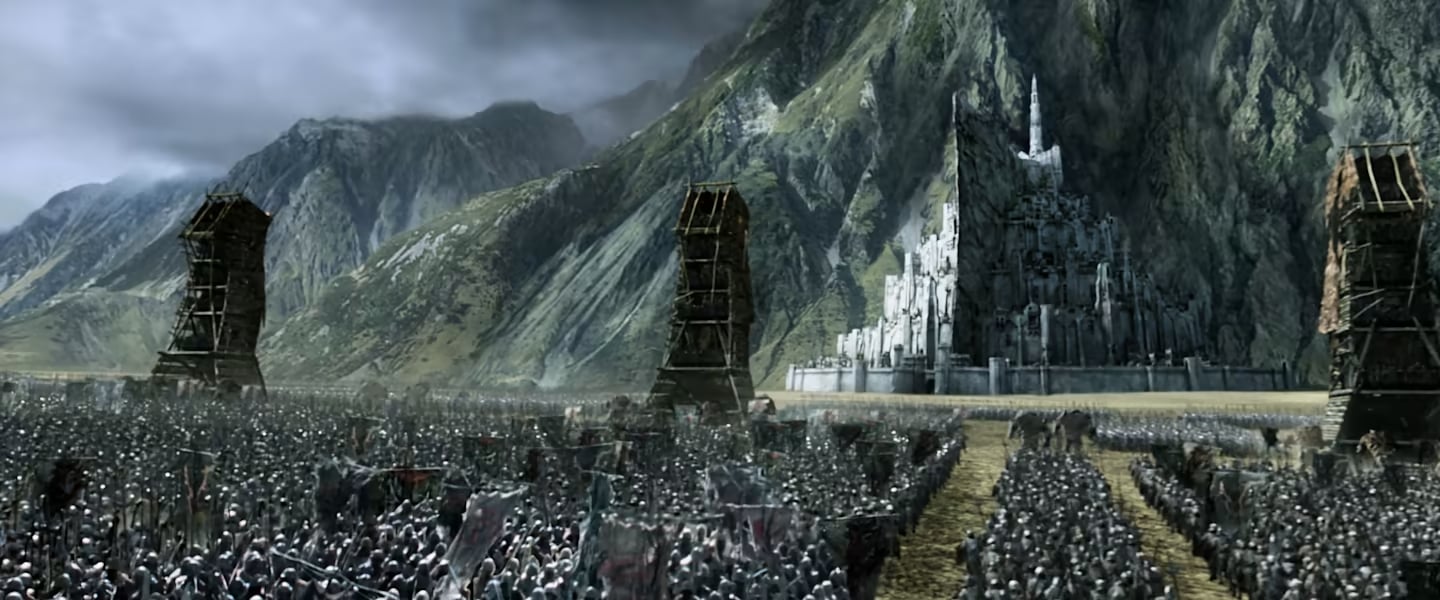
Sauron’s army attacks Minas Tirith in The Lord of the Rings: The Return of the King Extended Edition (2003), Warner Bros. Pictures
Interestingly, Tolkien also revealed to Christopher Tolkien in Letter 93 similar comments to those of Jackson about the the men fought to deliver the peace the Hobbits are able to enjoy.
He wrote, “C. Williams who is reading it all says the great thing is that its centre is not in strife and war and heroism (though they are understood and depicted) but in freedom, peace, ordinary life and good liking. Yet he agrees that these very things require the existence of a great world outside the Shire – lest they should grow stale by custom and turn into the humdrum….”
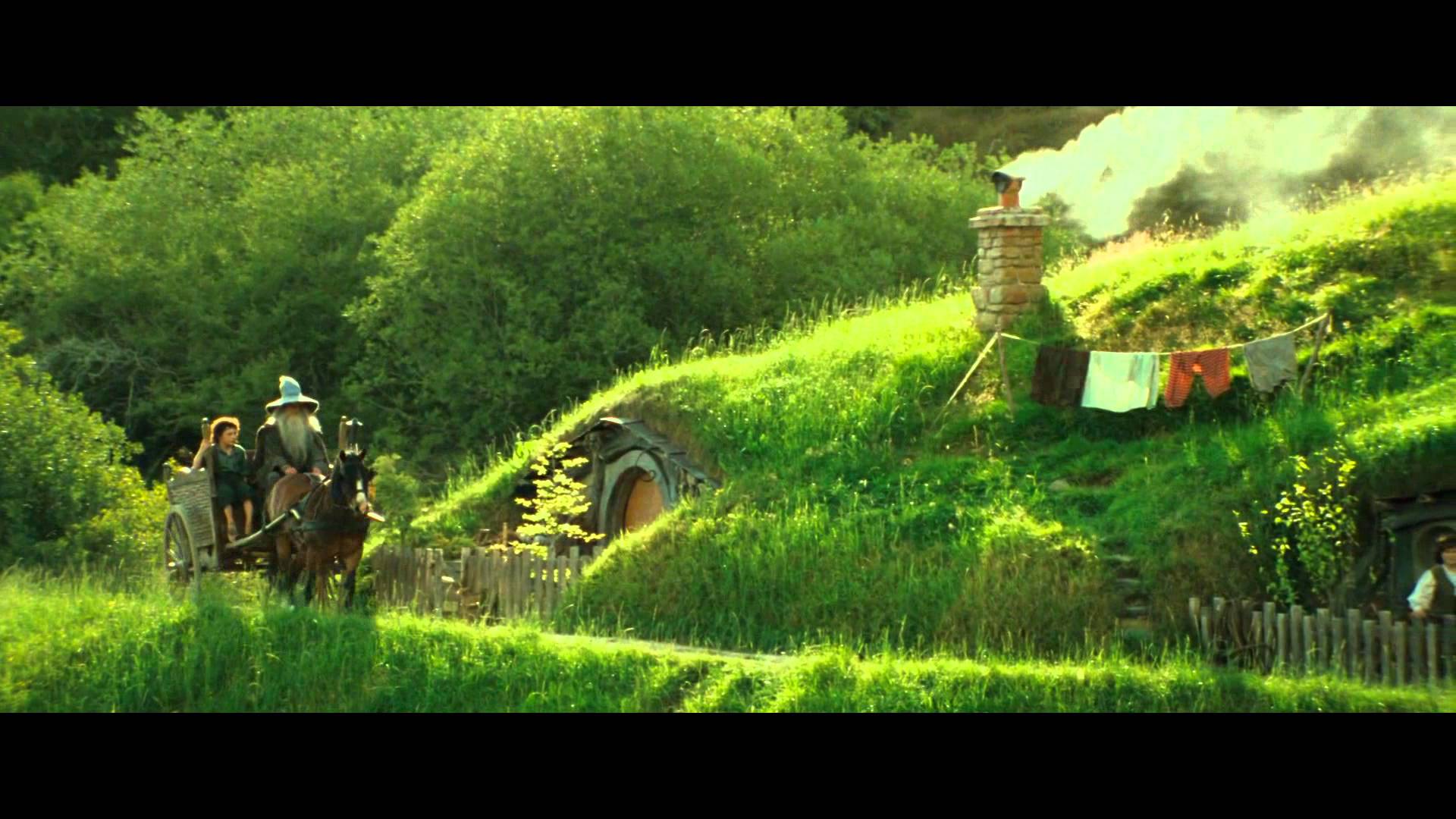
Ian McKellen as Gandalf arrives in The Shire in The Lord of the Rings: The Fellowship of the Ring (2001), New Line Cinema
What do you make of Jackson’s confirmation that he emphasized the spiritual aspects of Tolkien’s work moreso in the films than Tolkien even did in his books?
More About:Movies
